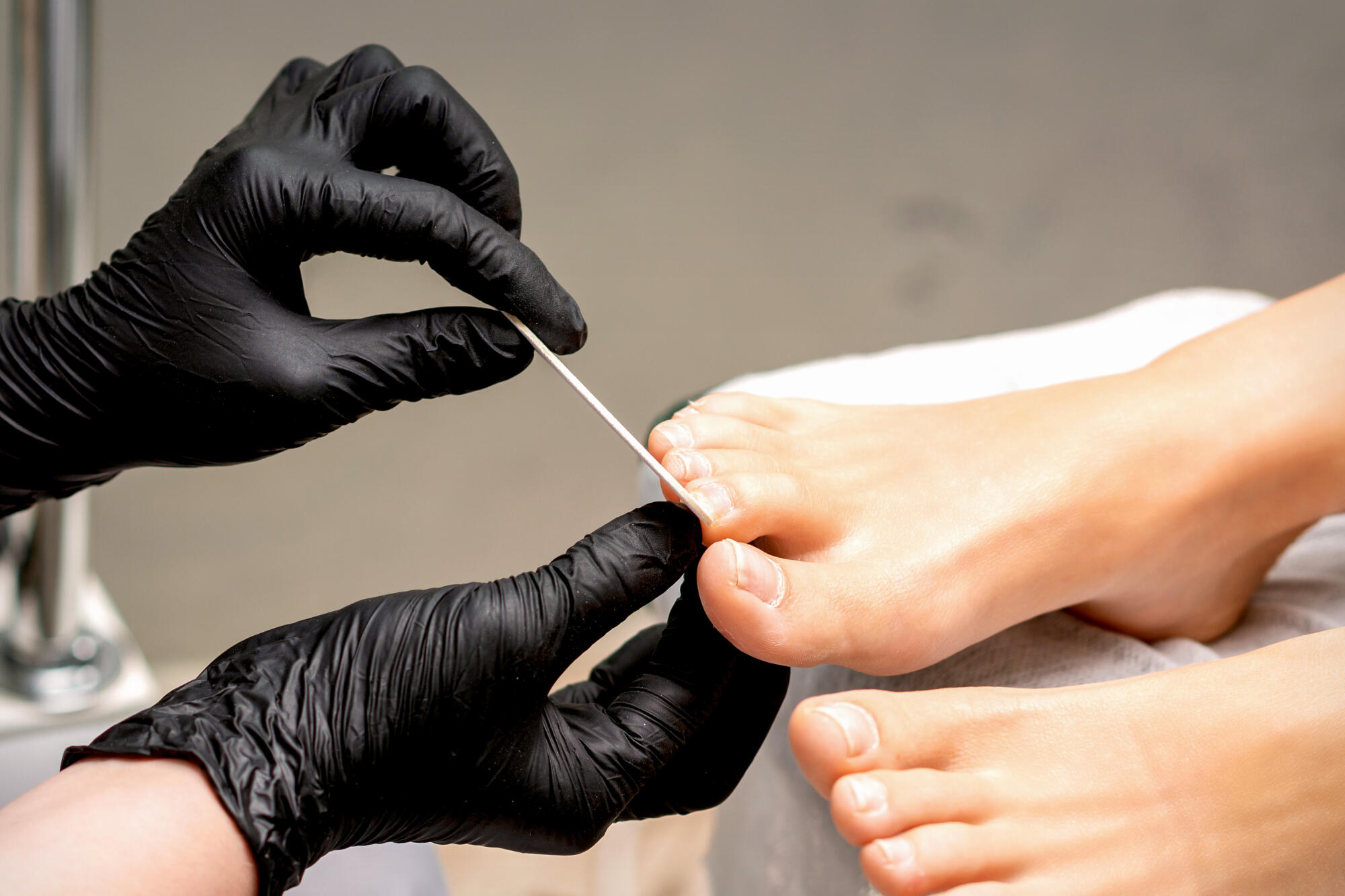
Is Toenail Fungus Contagious? What You Need to Know

Up to 14% of the general population may be affected by fungal nail infections. This widespread issue can cause discomfort, embarrassment, and even pain, significantly impacting your quality of life.
If you or someone you know is dealing with this problem, you might wonder: is toenail fungus contagious? The short answer is yes, it can be, which makes it crucial to understand how it spreads and how to protect yourself.
This article will delve into the risk of transmission and provide practical steps to prevent and treat toenail fungus. Keep reading to learn how to safeguard your health and maintain fungus-free nails.
What Exactly is Toenail Fungus?
Toenail fungus, or onychomycosis, is a common fungal infection that affects the toenails. The infection usually starts as a yellow or white spot under the tip of the toenail. It can cause the nail to discolor, thicken, and crumble at the edge as the fungal infection goes deeper.
If left untreated, the infection can spread to other nails and cause significant discomfort.
Causes of Toenail Fungus
Several factors contribute to the development of toenail fungus. The primary cause is exposure to fungi, such as dermatophytes, which thrive in warm, moist environments. These fungi can enter the skin through tiny cuts or small separations between the nail and nail bed.
Public places like swimming pools, gyms, and shower floors are common sources of fungi. Additionally, people who sweat heavily or have athlete’s foot are at higher risk.
Common Symptoms
Toenail fungus typically starts with subtle symptoms that gradually worsen. The initial sign is usually a small white or yellow spot under the nail. As the infection spreads, the nail may become thickened, brittle, or ragged.
Discoloration can range from white to yellow or even brown. In severe cases, the nail can detach from the nail bed and cause pain and a foul odor.
How is Toenail Fungus Contagious?
Toenail fungus spreads easily through direct contact with infected surfaces. Walking barefoot in public places like locker rooms, swimming pools, and showers can expose your feet to fungi. These environments are ideal for fungi to thrive which makes them hotspots for spreading toenail fungus.
Once the fungi come into contact with your skin, they can infect your nails, especially if you have any small cuts or breaks in the skin.
Spread Through Shared Items
Sharing personal items can also lead to the spread of toenail fungus. Using someone else’s nail clippers, socks, or towels can transfer the fungi from one person to another.
It’s essential to keep personal grooming tools clean and avoid sharing them, even with family members. This practice can significantly reduce the risk of spreading toenail fungus.
Environmental Factors
Environmental factors play a crucial role in spreading toenail fungus. Warm, damp environments provide the perfect conditions for fungi to grow and multiply.
Public places like gyms, spas, and communal showers are breeding grounds for fungi. People who frequent these areas should take precautions, such as wearing shower shoes and keeping their feet dry, to prevent infection.
Additionally, ensuring proper ventilation in footwear can help reduce moisture buildup, which also helps in preventing the spread of fungi.
How Long Is Toenail Fungus Contagious?
Toenail fungus remains contagious as long as the infection is present. The risk of spreading toenail fungus continues until the affected nail is completely treated and clear of the infection. Timely and consistent treatment is crucial to stop its spread.
Preventing the Spread of Toenail Fungus
Preventing the spread of toenail fungus requires diligent personal hygiene practices. Regularly washing and thoroughly drying your feet can help keep fungi at bay. Make sure to pay extra attention to the areas between your toes, where moisture tends to accumulate.
Using antifungal powders or sprays can provide an additional layer of protection, especially if you are prone to sweaty feet.
Proper nail care is another crucial step. Trim your nails straight across and file down thickened areas. Avoid cutting the skin around your nails, as this can provide an entry point for fungi.
Disinfecting your nail clippers and other grooming tools after each use can also help reduce the risk of spreading toenail fungus.
Using antifungal products is essential for both prevention and treatment. Over-the-counter options like antifungal creams, gels, and nail lacquers can be effective.
For instance, products like Amorolfine nail lacquer can be used to treat and prevent fungal infections. This medicated lacquer works by interfering with the production of ergosterol, an essential component of fungal cell membranes, thereby stopping the fungus from spreading.
Protecting your family members and others from toenail fungus involves a few simple precautions. Encourage everyone in your household to practice good foot hygiene. Avoid sharing personal items such as nail clippers, shoes, and socks.
If someone in your home has a fungal infection, make sure they wear protective footwear in communal areas to prevent spreading the fungus.
Treatment Options for Toenail Fungus
Toenail fungus treatment varies depending on the severity of the infection. Over-the-counter antifungal products are often the first line of defense.
Creams, gels, and lacquers like Curanail and Loceryl Nail Lacquer are designed to combat fungal infections directly at the site. These products are applied to the affected nails and work by penetrating the nail to eradicate the fungus.
For more severe cases, prescription medications may be necessary. These can include oral antifungal drugs or stronger topical treatments.
Home remedies can also offer some relief. Soaking the affected nails in a mixture of vinegar and water or applying tea tree oil has been found to have antifungal properties. While these methods can be helpful, they are generally less effective than medical treatments and should be used as complementary approaches.
Take Action Against Toenail Fungus Today
Is toenail fungus contagious? Yes, it can be. Understanding how toenail fungus spreads and taking preventive measures is crucial to avoid infecting yourself and others. We’ve covered the causes, transmission risks, prevention tips, and treatment options in this article.
At Kiwi, we provide a wide range of antifungal products to help you tackle this stubborn infection effectively. Don’t let toenail fungus disrupt your life. Explore Kiwi’s top-quality treatments today and take the first step toward healthier, fungus-free nails.
Related Posts

First Signs of Herpes: Your Guide to Early Symptoms
January 20, 2026